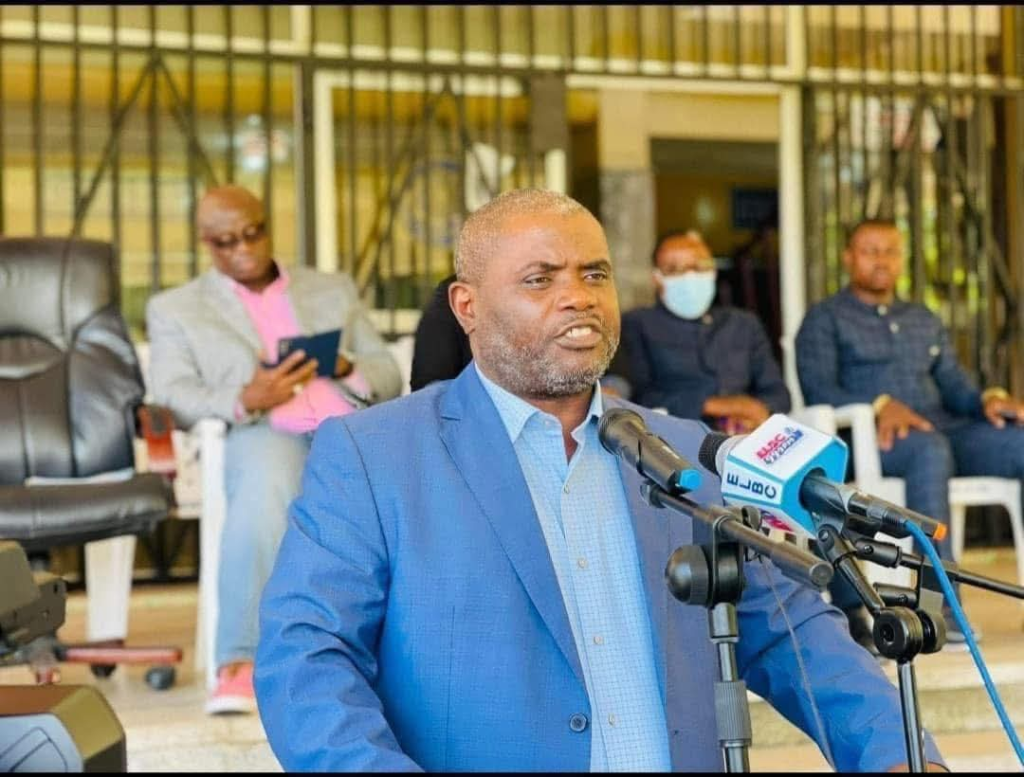Senator Saah H. Joseph’s proposition of a US$10,000 loan scheme for Liberian Legislature staffers has sparked widespread criticism and accusations of political maneuvering. Critics argue that the loan offer is a superficial gesture, failing to address the core issues of inadequate salaries and benefits faced by legislative employees. The senator’s past inaction on staff welfare issues further fuels skepticism, with many viewing the initiative as a thinly veiled attempt to bolster his public image ahead of upcoming elections. The timing of this loan proposal, coincident with Senator Joseph’s departure from the ruling party and the establishment of his own political entity, adds another layer of complexity to the situation, raising questions about the sincerity of his motives. The criticism highlights a disconnect between the senator’s purported concern for staff welfare and his actual legislative record, painting a picture of a politician prioritizing self-promotion over genuine advocacy for those he claims to support.
The heart of the criticism lies in the perceived inadequacy of the loan scheme compared to the significant challenges faced by legislative staff. While lawmakers enjoy substantial perks, including comprehensive fuel allocations and medical coverage, staffers, particularly those in the House of Representatives, have experienced significant cuts to their benefits, including a 50% reduction in fuel allowances. These disparities underscore the perceived insensitivity of the loan proposal, which, critics argue, fails to address the root cause of the staff’s financial struggles. The loan is seen as a band-aid solution that does little to improve the overall working conditions and financial stability of legislative employees. Instead of offering temporary financial assistance, critics argue that Senator Joseph should prioritize advocating for substantial and permanent increases in salaries and benefits, addressing the systemic issues contributing to staff dissatisfaction.
Senator Joseph’s history of legislative inaction regarding staff welfare further fuels the skepticism surrounding his motivations. Critics point to his lack of a demonstrable track record of supporting initiatives aimed at improving the lives of legislative employees. This perceived lack of commitment casts doubt on the genuineness of his current concern for staff welfare, leading many to believe that the loan scheme is primarily a political tactic designed to garner support and improve his public image in anticipation of upcoming elections. The timing of the loan proposal, coinciding with his political realignment, strengthens this perception, suggesting an opportunistic attempt to capitalize on the situation for personal gain.
Adding to the controversy is Senator Joseph’s recent departure from the ruling Congress for Democratic Change (CDC) and his subsequent establishment of the People’s Action Party (PAP). This political shift casts a shadow over the loan proposal, raising questions about whether it is a genuine attempt to address staff concerns or a calculated move to gain political leverage. By presenting himself as a champion of the people, particularly those working within the legislature, he aims to cultivate a supportive base for his nascent political party. This context transforms the loan scheme from a seemingly benevolent gesture into a potentially manipulative political tactic, designed to position himself as a leader who cares about the welfare of his constituents.
Senator Joseph’s rhetoric about democratic governance and party ownership further complicates the issue. While emphasizing the importance of people-centric leadership and rejecting one-man control within political parties, his actions appear contradictory. Critics argue that offering a loan scheme without addressing the underlying issues of inadequate salaries and benefits is not true empowerment but rather a superficial gesture. The loan, they argue, creates a sense of indebtedness and dependence rather than fostering genuine autonomy and improved working conditions. This disconnect between his words and actions raises questions about his commitment to democratic principles and the well-being of those he claims to represent.
The confluence of the loan scheme proposal, Senator Joseph’s political maneuvering, and his rhetoric on democratic governance creates a complex picture. His actions have ignited a debate about political sincerity and the true meaning of staff welfare. Critics argue that true leadership involves addressing systemic issues and advocating for lasting improvements, not offering temporary fixes that may serve personal political ambitions. The controversy surrounding the loan scheme underscores the importance of scrutinizing political motivations and holding elected officials accountable for their actions and their impact on the lives of those they represent. The situation raises fundamental questions about the future of democratic governance in Liberia and the role of political leaders in ensuring the well-being of their constituents.














